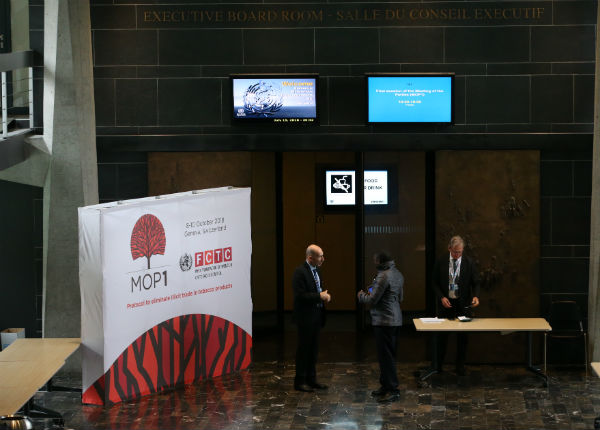
Parties to a global treaty to combat the international tobacco black market today opened their first session, launching a new front in tobacco control efforts.
The first Meeting of the Parties (MOP1) to the Protocol to Eliminate Illicit Trade in Tobacco Products marks a milestone in the implementation of its mother treaty, the WHO Framework Convention for Tobacco Control (FCTC).
“Today is an historic day for tobacco control,” said Dr. Vera da Costa e Silva, head of the WHO FCTC Secretariat. “The tobacco industry is highly skilled at employing strategies to evade national regulations by crossing borders. This Protocol offers a global solution to a transnational epidemic.”
The MOP1 discussions from 8 to 10 October come in the wake of the Protocol’s recent entry into force on 25 September. The meetings are the first opportunity for the Parties to the Protocol to discuss its implementation. Participants include delegations from 44 State Parties to the Protocol, 46 State non-Parties, and representatives from civil society and intergovernmental organizations.
The Protocol provides a comprehensive set of tools to fight illicit trade, including establishment of a global monitoring system to track and trace the movement of tobacco products and updates on their legal status. The Protocol also includes measures to promote international cooperation, including sanctions and law enforcement.
To date, 48 Parties have joined the Protocol, and two-thirds of the Parties have enacted or strengthened national legislation aimed at tackling illicit trade in tobacco products.
The Protocol aims to combat the tobacco black market, which has played a key role in undermining tobacco control policies and public health. Illicit trade in tobacco products also fuels organized crime and increases tobacco profits through the evasion of taxes, resulting in substantial losses in government revenue.
Dr. da Costa e Silva called on the Parties to the Protocol to forge a united front against the illegal tobacco market.
“Combatting the illicit trade in tobacco products is a global problem that requires international cooperation,” she said.
Dr. da Costa e Silva emphasized that effective implementation of the Protocol must involve the collaboration of government agencies, including customs, finance and law enforcement, with the close engagement of the health sector as, ultimately, the Protocol’s success will be measured in public health gains.
The MOP1 discussions will review a Progress Report by the FCTC Secretariat, which provides an update on the status of the Protocol and a summary of activities conducted by the Secretariat and a Panel of Experts on the Protocol.
For further information and media requests, please contact:
Pascal Gysel, FCTC Media & Communications Officer
Email:mediafctc@who.int
+41 78 663 37 30